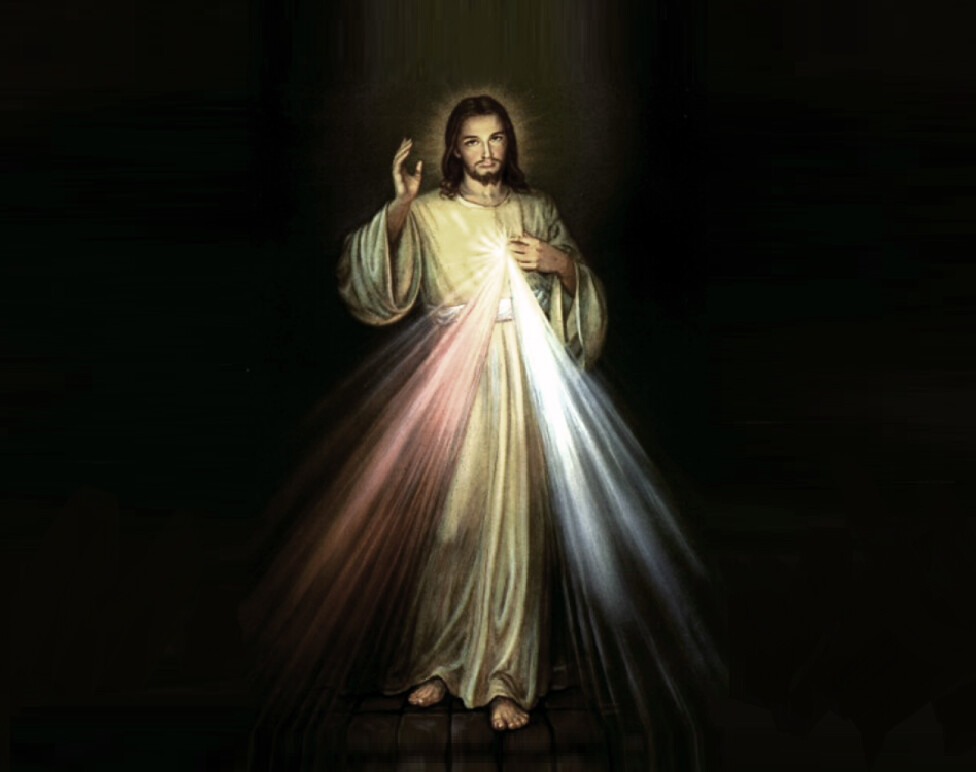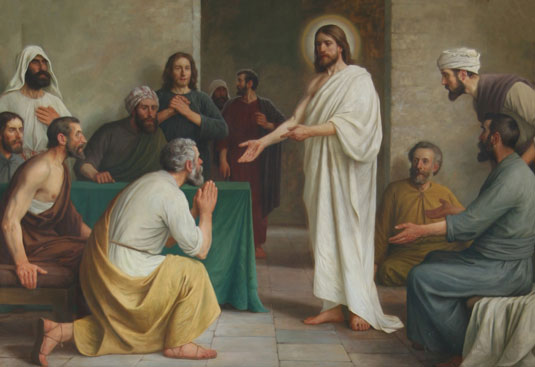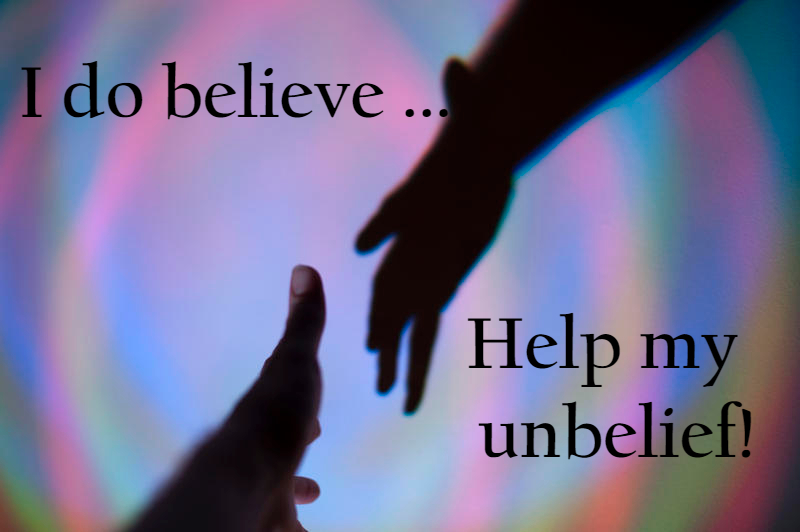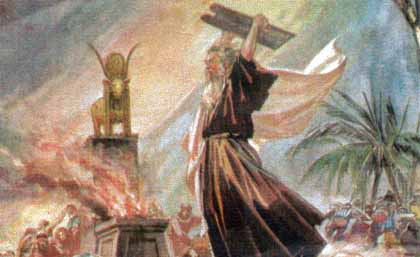I always like to say that today, this octave day of Easter Sunday, this Sunday of Divine Mercy, is the feast day for those of us who sometimes question things, and the apostle, Saint Thomas, is would then be our patron saint. Sometimes we give poor Saint Thomas a hard time for his unbelief, and we can disparage all those other “doubting Thomases” in our lives. But maybe we today can just come to the Lord in our humility and say “My Lord and my God!” Today, we celebrate with all the joy of Easter Day that God’s Divine Mercy reaches us in our doubt and uncertainty and calls us to belief.
Now, I’m sure we can all think of at least one time when we were reluctant to believe something, or had our faith tested, only to have Jesus stand before us and say, “Peace be with you.” I remember the time that it became apparent to me that the Lord was calling me to go to seminary after so many years being out of school. I had a long list of reasons why that wouldn’t work, why it couldn’t be done at this stage of my life, why anyone would be a better choice than me. And I never got a direct answer to any of that. Never. In some ways, all I got was Jesus standing in the midst of my questioning and saying to me “Peace be with you.” And six months later I was in seminary. Letting Jesus fill you with peace can be life-changing.
I am going to guess that you had that same kind of experience at some point in your life, at some time. If not, you will. Maybe it was in college when you started really questioning your faith and felt like everything anyone had ever told you was a lie. Or maybe it was the time you were called to do something at Church, or even take a turn in your career, and couldn’t possibly believe that you were qualified to do that. Maybe it was the time it suddenly dawned on you that you were going to be a parent, and had no idea how you could ever raise a child. It could even have been the time when you completely changed your career – as I did – and weren’t totally sure that was God’s will for you, or how it would all work out. Some time in our life, we have to take a leap of faith, or if we don’t, we will spend our forever wondering “what if.”
Sure: like Saint Thomas, we want evidence, we want hard facts, a good hard look at the big picture, something that will confirm our decision before we’re ready to jump in. We want to “see the mark of the nails in his hands and … put [our] hands into his side.” But that’s not faith. Some people say that seeing is believing, but faith tells us that believing is seeing. “Blessed are they,” Jesus says, “who have not seen but still believe.” We sometimes first have to make an act of faith, a leap of faith if you will, before we can really see what God is doing in our lives. And that’s the hard part; that’s the part that, like Thomas, we are reluctant to do.
Jesus makes three invitations to us today. The first is to believe. Believe with all your heart and mind and soul. Believe first, and leave the seeing to later. Trust that God is with you, walking with you, guiding you, willing the best for you. This is Divine Mercy Sunday, so we are called to trust in our merciful God who pours out his love on us each day. Even though we don’t deserve it. Even though we haven’t earned it. Be ready to make that leap of faith. What God has in store for us is so much better than our little plans for our lives. We have to know that if God calls us to do something, he will give us what we need to do it. Be blessed by not seeing but still believing.
The second invitation is to touch. “Put your finger here and see my hands,” Jesus says to Thomas, “and bring your hand and put it into my side, and do not be unbelieving, but believe.” He makes that same invitation to us every time we walk up to receive Holy Communion. What a gift it is to be able to share in Christ’s wounds, to be bound up in his Passion, to live the resurrection and to be nourished by his very body and blood. Just like Thomas, we’re invited to touch so that we too might believe.
The third invitation is to live a new day. The Gospel tells us that Jesus first came to the Apostles on the evening of the “first day of the week.” That detail isn’t there so that we know what day it is or can mark our calendars. In the Gospel, the “first day of the week” refers to the new day that Jesus is bringing about – a new day of faith, a new day of trust in God’s Divine Mercy, a new day of being caught up in God’s life. We are invited to that new day every time we gather for worship.
We will have doubts, periodically and sometimes persistently. But God does not abandon us in our doubt. Just like Thomas, he comes to us in the midst of our uncertainty and says to us: “Do not be unbelieving, but believe.” “Peace be with you.”
Christ is risen! He is risen indeed! Alleluia!
Jesus, I trust in you.







You must be logged in to post a comment.